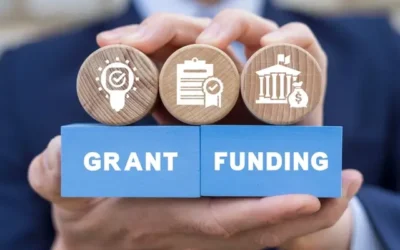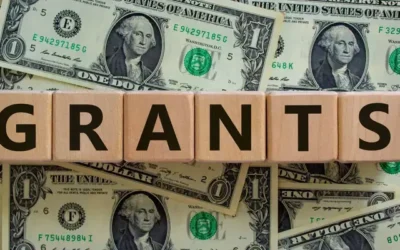VA Disability Grants Fund Accessible Homes and Cars
VA disability housing grants
VA Form 26 4555
HISA grant
Auto allowance and adaptive equipment
VA disability grants are tax free benefits that can pay for accessibility improvements without needing repayment. The biggest programs help you buy, build, or modify a home with SAH or SHA, add temporary modifications with TRA, and fund medically necessary changes through HISA. VA also offers separate grants for vehicle purchase and adaptive equipment when a service connected condition qualifies.
2026 VA housing disability grants
| Grant type | 2026 max amount | Primary purpose |
|---|---|---|
| Specially Adapted Housing | $126,526 | Build, buy, or remodel for severe mobility or vision disabilities |
| Special Home Adaptation | $25,350 | Adapt a home for specific qualifying disabilities |
| Temporary Residence Adaptation | $50,961 or $9,100 | Modify a family member’s home during a temporary living situation |
| Home Improvements and Structural Alterations | $6,800 | Medically necessary home changes through VA health care |
- SAH versus SHA: SAH generally targets severe mobility or vision impairments, while SHA targets other qualifying disability categories like loss of use of both hands or certain severe burns.
- HISA nuance: HISA is a lifetime benefit through VA health care and requires medical necessity documentation, with different limits based on eligibility.
2026 automobile and special allowances
- Automobile allowance: A one time grant of $27,074.99 can help purchase a specially equipped vehicle when a qualifying service connected disability applies.
- Adaptive equipment: VA can also support adaptive equipment like hand controls, wheelchair lifts, and special seating when medically justified.
- Clothing allowance: An annual payment of $1,053.19 can apply when an eligible prosthetic or orthopedic device damages clothing over time.
- Eligibility is condition specific: These benefits depend on the disability category, so documentation and VA determination control approval.
Application process and forms
- SAH and SHA application: Apply using VA Form 26 4555 through VA channels, and coordinate with the Regional Loan Center for the housing grant workflow.
- TRA is tied to SAH or SHA: TRA uses your SAH or SHA eligibility path, and is intended for modifications to a family member’s home while you live there temporarily.
- HISA is through VA health care: HISA requires medical documentation and VA Form 10 0103 submitted to your VA medical center, not the loan center.
- Keep records organized: Approval is faster when you provide the disability basis, contractor scope, estimates, and occupancy plan clearly upfront.
Which grant fits your situation
- Use SAH for major accessibility needs: If the home needs significant layout or access changes, SAH is usually the most powerful tool when you qualify.
- Use SHA for specific categories: SHA fits qualifying disabilities that need adaptation but typically smaller scope and funding than SAH.
- Use TRA for a temporary home base: TRA helps when you are living with family while you recover, relocate, or prepare a permanent home.
- Use HISA for medically necessary fixes: HISA is a practical tool for ramps, bathroom access, or doorway changes when the work is tied to medical need.
FAQs
What are disability grants for Veterans?
What is the difference between SAH and SHA?
How do I apply for VA disability housing grants?
What Are Disability Grants for Veterans?
Disability grants for Veterans are funds provided primarily by the VA (and sometimes private or nonprofit organizations) to help with the costs arising from service-connected disabilities. Unlike loans, they don’t need to be repaid.
These grants can be used in several ways:
- Adapting a Home: Installing ramps, widening doorways, or making bathrooms more accessible.
- Purchasing Adaptive Vehicles: Getting a car or van equipped with hand controls or wheelchair lifts.
- Essential Upgrades: Specialized clothing or prosthetic-friendly adjustments in your home.
Because service-connected disabilities vary in severity, the VA offers multiple types of grants, each with specific eligibility guidelines. Knowing which grant suits your situation can save you a lot of time and effort.
Types of VA Disability Grants
Specially Adapted Housing (SAH) Grant
The SAH grant provides up to $117,835 (as of April 7, 2026) to help Veterans with severe disabilities build or adapt a home for greater accessibility.
If your service-connected disability makes movement or everyday tasks especially tough—such as loss of use of both legs or severe vision impairment—this grant could be your best bet. You can use the SAH grant up to three times, as long as you don’t exceed the total cap. Common adaptations include:
- Building ramps for wheelchair access
- Widening hallways and doorways
- Adjusting kitchen counters and bathroom fixtures to accommodate mobility devices
This grant is a huge advantage if you’re planning to buy a new home or extensively remodel your current one.
Special Home Adaptation (SHA) Grant
Short Answer: The SHA grant offers up to $23,566 for Veterans with moderately severe service-connected disabilities to make smaller-scale home adaptations.
If your disability is significant but not as extensive as those required for SAH eligibility—for instance, loss of one limb or partial vision loss—this grant may be a better fit. You can use it up to three times within the lifetime amount. Typical upgrades include:
- Installing grab bars and handrails
- Creating barrier-free bathrooms (e.g., roll-in showers)
- Modifying lighting or switches for better accessibility
SHA grants are perfect if you need targeted improvements rather than a complete overhaul.
Automobile Allowance
The VA offers a one-time automobile allowance of up to $24,985 to help buy a specially equipped vehicle.
Veterans who have lost or lost the use of a limb, have severe joint restrictions, or face mobility-limiting conditions like ALS can use this grant to purchase a new or used car adapted to their needs. Typical modifications include:
- Hand controls for gas and brakes
- Wheelchair lifts
- Special seating or transfer equipment
You may reapply for additional funding every four years if your adaptive needs change or if you need to replace your vehicle.
Other Grants
Some nonprofits and state programs also provide grants to help with housing, transportation, or general living expenses for Veterans with disabilities.
While the VA is the largest source of funds, there are other routes worth exploring:
- Nonprofit Organizations: Groups like the Travis Mills Foundation or Homes For Our Troops often focus on building or remodeling homes for severely injured Veterans.
- State and Local Programs: Some states offer their own Veteran grants for emergency home repairs, vehicle adaptations, or other specific needs.
These programs vary widely by location, so it pays to do some local research. Often, a quick call to a Veterans Service Officer (VSO) or county Veteran office can help you uncover these options.
Who Qualifies for Disability Grants?
Qualifying generally requires a service-connected disability, a VA disability rating (often 50% or higher), and ownership or intent to purchase/adapt a home or vehicle.
Each VA disability grant program has its own specific criteria. In most cases, you must have:
- Service-Connected Disability: The VA has to officially recognize your condition as linked to your military service.
- Appropriate Disability Rating: A disability rating of 100% may be required for the highest-level grants (like SAH), while a lower rating might suffice for others (like SHA).
- Documentation of Housing or Vehicle Needs: Typically, you must either own or plan to own the property or vehicle in question. Renters need written landlord approval for structural modifications.
Non-VA grants sometimes have looser requirements; however, you might need to show financial need or meet other criteria specific to each organization.
| Grant Type | Max Amount | Key Eligibility Requirements |
|---|---|---|
| SAH Grant | $117,835 | 100% rating, severe mobility or vision impairments |
| SHA Grant | $23,566 | 50%+ rating, moderate disability (loss of limb, partial vision) |
| Automobile Allowance | $24,985 | Loss of limb use, severe mobility impairment |
How to Apply for Disability Grants
Identify the right grant for your needs, confirm your VA disability rating, gather necessary documents, and submit the correct VA form online or by mail.
- Check Your VA Rating: Look at your most recent VA decision letter or log in to eBenefits. If you haven’t received a rating yet, file a disability claim using VA Form 21-526EZ.
- Choose the Right Grant:
- Specially Adapted Housing (SAH)/Special Home Adaptation (SHA): If you need to build, modify, or buy a home.
- Automobile Allowance: If you require a vehicle with special equipment.
- Gather Required Documents:
- DD-214 (military discharge papers)
- Proof of Disability (VA rating documentation)
- Property Information (ownership details or purchase agreement)
- Complete the Correct VA Form:
- SAH/SHA: VA Form 26-4555
- Automobile Allowance: VA Form 21-4502
- Submit and Follow Up: Processing can take 30–90 days. Keep in touch with the VA or a VSO if you encounter delays.
- Use the Funds:
- Housing: The VA typically pays contractors directly.
- Vehicles: You may be reimbursed or the dealer may be paid directly.
Pro Tip: Start your application early—especially if you’re building or renovating. The VA won’t necessarily reimburse you for costs incurred before your grant is approved.
What If You Don’t Qualify?
If you don’t meet VA criteria, explore state programs, nonprofits, or local resources that offer alternative grants or financial assistance.
Sometimes Veterans don’t meet the VA’s strict service-connected requirements or disability-rating thresholds. If that happens, consider:
- State Veteran Programs: Many states have separate funding or assistance for adapted housing.
- Nonprofit Organizations: Homes For Our Troops provides mortgage-free homes for severely injured post-9/11 Veterans.
- Crowdfunding: Platforms like GoFundMe can be effective for smaller projects or urgent needs.
- Veterans Service Officers: A VSO can help identify loopholes or lesser-known resources and walk you through appeals.
How Much Can You Get? (2026 Limits)
Depending on the severity of your disability and the specific grant, amounts range from about $23,566 to over $100,000 for housing, plus $24,985 for vehicles.
Here are the basics once again:
- Specially Adapted Housing (SAH): Up to $117,835 total.
- Special Home Adaptation (SHA): Up to $23,566 lifetime limit.
- Automobile Allowance: $24,985 (renewable if needs change after four years).
These figures often adjust annually based on inflation and cost-of-living changes, so always double-check current rates on
VA.gov.
| Source | Amount Range | Repayment? | Eligibility Scope |
|---|---|---|---|
| VA SAH Grant | Up to $117,835 | No | Severe, service-connected |
| VA SHA Grant | Up to $23,566 | No | Moderate, service-connected |
| VA Auto Grant | $24,985 | No | Loss of limb use or severe mobility |
| State Programs | $1,000–$50,000+ | No | Varies by state |
| Nonprofits | $5,000–$100,000+ | No | Often for post-9/11 or severely injured vets |
Tips to Boost Your Chances
Make your application strong by being thorough, working with experts, and detailing your specific needs.
- Confirm Your Disability Rating First: Appeal if you believe your rating is too low.
- Organize Medical Records: Supply clear evidence of how your disability affects daily life.
- Partner with a VSO: Veterans Service Officers are free experts who can help you avoid mistakes.
- Be Specific: Clearly explain the exact adaptations you need and why they matter.
- Double-Check Everything: Missing paperwork—even small details—can lead to denials or delays.
A Veteran I know missed out on an SAH grant because he left out the documentation proving he used a wheelchair. Once he added that to his appeal, he was approved. Accuracy and completeness matter.
Common Questions About Disability Grants for Veterans
Below are the most common queries about disability grants, plus straightforward answers to guide you. For more detailed information, check out the VA’s official website or consult a local VSO.
Frequently Asked Questions
- Do I need a 100% disability rating for all grants?
No. You need 100% for the Specially Adapted Housing (SAH) grant, but the Special Home Adaptation (SHA) grant often requires around 50% or more, depending on your condition. The Automobile Allowance focuses on specific mobility impairments. - Can I use VA housing grants for a rental property?
Yes, in some cases. However, you must have written permission from the landlord, and the VA must also approve the adaptations. It’s generally more complicated than owning your own home. - How long does approval usually take?
It often ranges from 30–90 days. Applying online tends to be quicker, while incomplete or missing documents can cause delays. - Are these grants taxable?
No. VA disability grants are tax-free and do not affect most other federal or state benefits. - What if my disability worsens over time?
You can reapply or seek an increased disability rating. A higher rating may make you eligible for larger grants or additional adaptations. - Can I combine multiple grants?
SAH and SHA grants usually can’t be used together, but you might combine an Automobile Allowance with a housing grant if you qualify for both separately. - Do I need a service-connected disability for all grants?
Yes, for VA grants. Non-VA resources vary; some require service-connected disabilities while others consider a broader definition of “Veteran with special needs.” - What if the VA denies my application?
Denial isn’t always final. You can appeal with more evidence or get a VSO to help you build a stronger case. - Can surviving spouses apply?
Yes, if the Veteran’s death was service-related, certain grants can transfer to an eligible surviving spouse. The same forms generally apply. - Is there an age limit?
No. Age is not a factor. As long as you meet the disability and service-connection criteria, you can apply.







